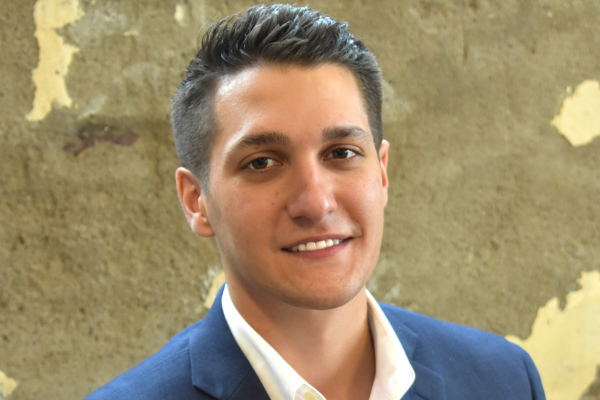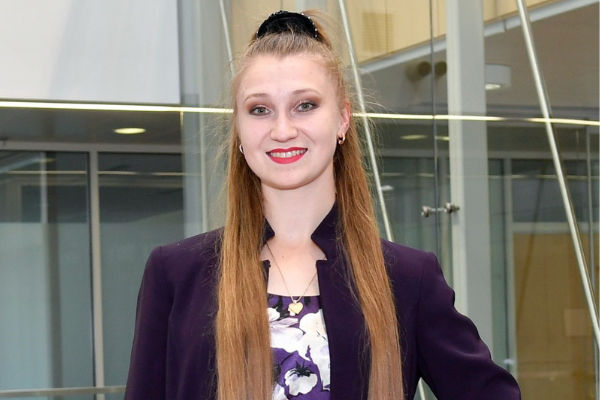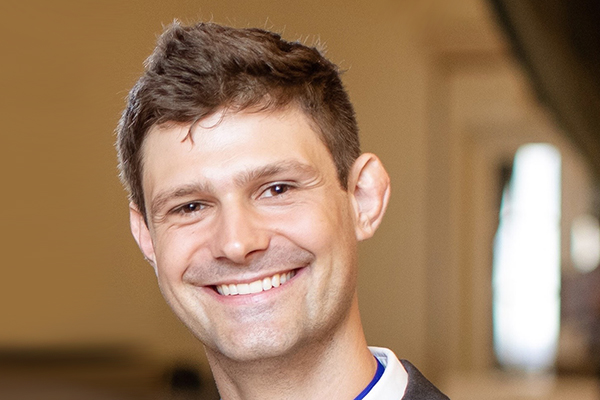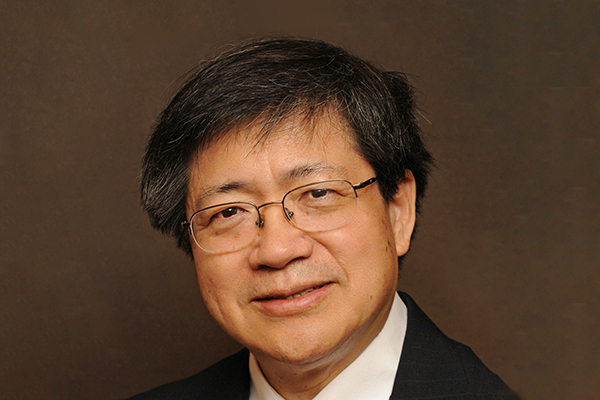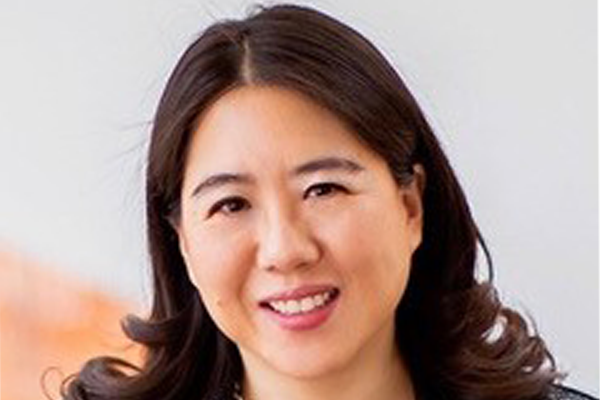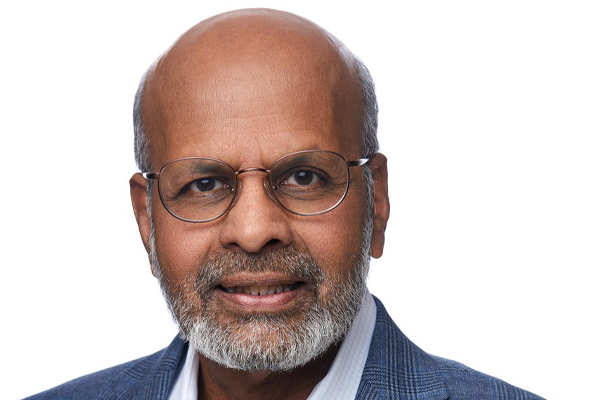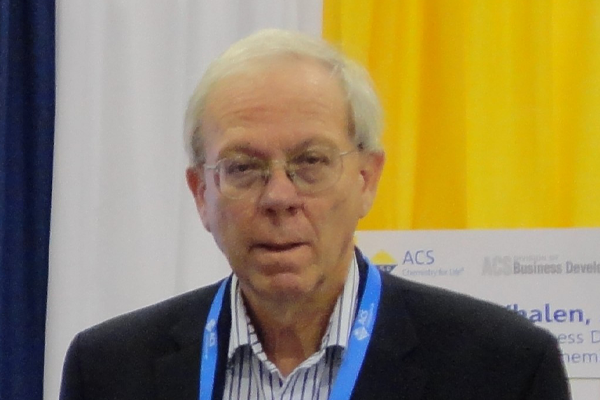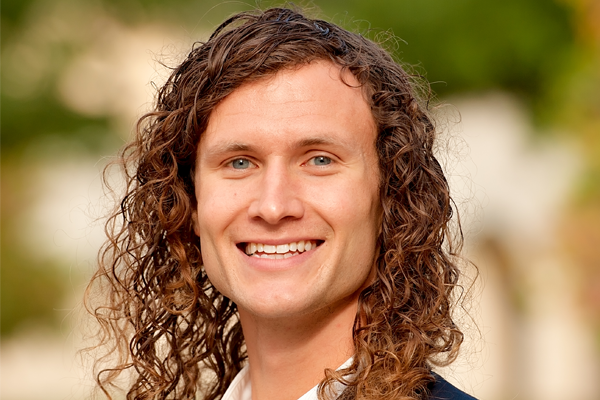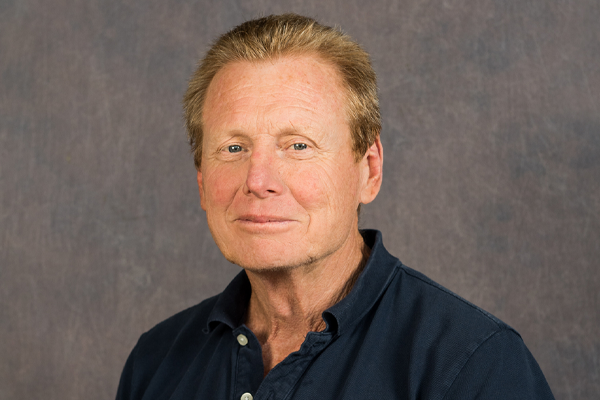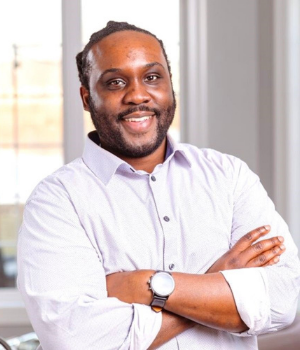
Owusu-Ofori is originally from Greensboro, N.C. He earned his B.S. in Structural and Molecular Biochemistry from North Carolina State University, and his doctorate in Pharmaceutical Sciences from the University of Wisconsin-Madison. After graduating from UW-Madison, he completed an entrepreneurship fellowship with the Ewing Marion Kauffman Foundation and learned the LEAN startup approach, which emphasizes a process of building commercially viable products faster.
Inspired by a trip to Ghana where he learned about herbal teas that increase the potency of western medicines, and also discovered the country's high-quality cocoa, Owusu-Ofori used the LEAN startup method and initial funding from the National Science Foundation to develop “Twi Pods” - the company’s first product line.
Before founding Satori, Dr. Owusu-Ofori worked as an Operations Manager for the Milwaukee Public Health Laboratory.
Anxiety disorders affect 40 million Americans across all ages and socioeconomic classes. For many, the pandemic has worsened their symptoms and limited their access to mental health care.
Satori Food Project Inc., a Milwaukee based startup founded by Kwadwo Owusu-Ofori, Ph.D., is pioneering the use of food products enhanced with vitamins and minerals to promote mental health and wellness.
“Twi Pods” are anxiety-relieving coffee and hot cocoa pods for Keurig coffee brewers. “Many people don’t want to take several pills every day to manage anxiety, so we created coffee and cocoa products to aid mental health,” Owusu-Ofori explains. Twi Pods use magnesium and L-theanine to produce their anxiety-relieving effects.
Twi Pods were launched on Amazon Prime during summer 2020, and the company is currently defining its clinical value for patients with anxiety disorders. Anecdotally, customers have reported positive impacts on their mental health, says Owusu-Ofori.
Although Twi Pods are new to the marketplace, they are predicted to do well with current K-cup users, and psychiatry patients. Owusu-Ofori estimates that his total addressable market is $130 billion — which is based on the number of Americans that have a Keurig machine, drink coffee every day, and have a diagnosed anxiety disorder.
Can you tell us more about your background and early interactions with anxiety patients?
I have a doctorate degree in Pharmaceutical Sciences, and have published in the fields of molecular pharmacology and laboratory management. My conversations with people managing anxiety disorders started while I was in college and continue to this day. I’ve interviewed a wide-variety of people with very interesting ways to manage their anxiety.
One thing I’ve noticed is that there are very strong opinions around the use of prescription medications to manage anxiety disorders. Some people feel like prescription medications are the only scientifically sound way to manage anxiety, and some people feel like prescription medications can only lead to a foggy mind, addiction, and death.
These views are very extreme. So I made a promise to myself early on to create products that can bring these two factions together in a productive and non-judgmental way.
What were your frustrations in starting the business and can you describe how you used LEAN startup methodology to go from startup through iterative development?
Product development is a very frustrating and exciting process. It took us more than four years to make products that were unique, effective, and could be manufactured at scale. I’m in the healthcare industry, so I’ve seen my fair share of companies making products that no one wants and/or no one can manufacture at scale. We desperately wanted to avoid those common product development traps. So we spent more time on product development than a normal healthcare company would.
LEAN startup focuses heavily on creating and iterating on a Minimum Viable Product (MVP) -- a quick and unsophisticated version of a product solution that people can interact with. We did this by asking patients, “What’s the easiest way to take vitamins or prescription medications for anxiety?”
Interestingly, pills and capsules were almost never suggested. However, we got a ton of great suggestions ranging from “mind-freshening breath mints” to “calming coffee creamers.”
Using LEAN Startup methods like “Voice of the Customer” helped us quickly build or scrap dozens of product ideas before investing in manufacturing and clinical trials. Our MVP was a coffee creamer, and it eventually evolved into a coffee pod.
How have investors reacted to your ideas of using vitamins to relieve anxiety? Can you bring us up to date on your funding and desire to move the product into retail outlets?
Food and beverage investors have been very supportive. There is a lot of excitement around making “better for you food” more central to healthcare, especially for the prevention and treatment of chronic diseases.
But we have also heard our fair share of “no’s.” Some investors are categorically not backing any pharmaceuticals/biotechnology companies because of the billions of dollars lost in the 1990s to the promise of high-throughput screening of randomized chemical libraries. And some investors prefer to back small molecules whose intellectual property can be protected in traditional ways. Both of these are fair objections to our proposals. We have a pretty bold mission that can be hard for traditional investors to support.
We pitched to dozens of investors, and eventually raised $160,000 to build a proof of concept. Because we used LEAN startup methodology, we manufactured and launched Twi Pods within one year of financing. And we’ve seen amazing market traction on Amazon Prime ever since. For comparison's sake, it usually takes 10 years and $700 million to launch a healthcare product in my industry.
The next steps are to analyze our online data and translate it into a data-driven strategy to expand into brick-and-mortar retail stores. We’re very excited about this.
Can someone without anxiety use the products? What effect would it have on them?
Absolutely. Twi Pods offer a way to effortlessly protect and improve mental health. That’s for everybody.
People can feel (h)angry when we’re hungry. And we can also feel (h)anxiety when we’re hungry. Researchers are currently building a body of evidence that links magnesium deficiency to anxiety disorders. Twi Pods provide everyone with a daily source of magnesium that can easily protect their mental health against anxiety that can be caused by magnesium deficiency.
What about those who don’t like to drink coffee? Any plans for protein bars or other products?
Absolutely. We currently offer hot cocoa pods for people that do not drink coffee, and we are expanding our product offerings to include tea pods and apple cider pods. We could also build some of the great ideas people suggested during product development, such as “mind-freshening breath mints.”
Can you describe how you’ve been and continue to collect data about the effectiveness of the products? What have you learned so far and have you adapted the products to those findings?
We use in-depth interviews with psychiatrists, and customer product reviews to determine the effectiveness of Twi Pods. Qualitative data like this provides insight into clinical value and customer satisfaction needed at this stage of development. For example, we found that psychiatrists and their patients preferred that we provide less than the recommended daily allowance (RDA) of magnesium per serving. This offers them more control over the amount of magnesium they’re taking, and when they are taking it. We also found that a noticeable number of people felt better within minutes of drinking Twi. This effect surprised us because the published data describing the roles of magnesium and L-theanine in anxiety show decreases in anxiety over a 2-3 week period.
After more investigation, we found a large body of research explaining this observation. We have now moved away from just researching specific cell signaling pathways in areas of the brain associated with anxiety, to studying the more general relationships between magnesium deficiency, brain activity, and anxiety disorders.
What’s next for you and your company?
Our goal is to meet the FDA guidelines required to make a health claim. This is central to our bold mission as a company.
The scientific method always begins with an observation. Our qualitative observations give us a clear direction for a high-quality clinical trial design. We hope that the Small Business Innovation Research (SBIR) grant program will support randomized clinical trials for Twi Pods.
We are also preparing for our next round of fundraising. We plan to hire more employees and streamline business operations for maximum success as we expand into retail outlets. This is going to be a very exciting year for Satori Food Project. Wish us good luck!
This article has been edited for length and clarity. The opinions expressed in this article are the author's own and do not necessarily reflect the view of their employer or the American Chemical Society.
Copyright 2021 American Chemical Society (All Rights Reserved)

